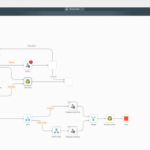Top 13 Tech Jobs That Require No Coding
Learning coding skills can be a wonderful endeavour, but it may not be everyone’s preference. Additionally, individuals who already have full-time jobs and various commitments might encounter challenges when it comes to dedicating sufficient time to acquire a strong proficiency in programming languages, which is crucial for pursuing a career as a software engineer.
If you find yourself in this situation, it is important to remember that there are still plenty of opportunities for you within the tech industry. Instead of completely dismissing it, consider exploring non-coding roles that align with your interests and skills. By doing so, you can discover positions that offer a better fit for your career goals and provide a fulfilling professional experience. In this article, I have compiled a list of the top tech careers you can land in without learning to code.
1. Product Manager
Product managers, often referred to as product owners, are highly valued in the tech industry, and they are known to earn even higher salaries than software engineers in Silicon Valley. These professionals are responsible for overseeing the strategy, design, and implementation of the products developed by their companies. While coding skills are not mandatory for this role, having some knowledge of programming can be advantageous. It’s worth noting that product management typically demands a greater level of experience compared to other positions mentioned, making it an attractive option for individuals seeking lucrative and impactful career opportunities within the tech sector.
2. Project Manager
In certain aspects, project management shares similarities with product management mentioned earlier, but on a smaller scale. Project managers are responsible for overseeing individual projects, starting from the planning phase and extending all the way to execution. They possess a unique ability to envision the big picture while paying attention to the finer details. Project managers play a pivotal role in cross-functional collaboration, bringing together engineers, marketers, product specialists, and various other stakeholders to ensure successful project completion. Their expertise lies in effectively coordinating teams and resources to achieve project goals and deliver outstanding results.
3. Technical Writer
The importance of programming knowledge may vary depending on your workplace, but having programming skills can undoubtedly enhance your abilities as a technical writer. However, it is essential to note that there is a wealth of technical content that doesn’t involve coding at all. This includes tasks such as crafting manuals, writing product press releases, and creating instructions and use cases. These areas of technical writing require expertise in effectively communicating complex information to users, highlighting the features and functionalities of a product or service, and providing clear and concise instructions.
Also Read This: How Is Low-Code Development Transforming The SaaS Industry
4. User Experience Designer
If you excel at recognizing and effectively expressing the strengths and weaknesses of products, comprehending user needs, and analyzing data, the field of UX design may be a natural fit for you. Engaging in UX design not only offers the opportunity to utilize your talents but also provides the satisfaction of simplifying and enhancing the lives of users. By immersing yourself in this domain, you can derive a profound sense of fulfilment by utilizing your expertise to evaluate and optimize product usability, ensuring a seamless and enjoyable user experience.
5. User Interface Designer
User interface design, recognized as one of LinkedIn’s highly sought-after skills in 2017, primarily involves collaborating with software to design interfaces that are clear, efficient, and visually appealing to users. For artists or graphic designers, this tech career path offers an excellent opportunity to apply their creative talents in the field. By pursuing a career in user interface design, individuals can leverage their artistic and design skills to create intuitive and visually captivating interfaces, thereby enhancing the overall user experience.
6. Information Architect
Have you ever found yourself navigating websites and thinking, “This could have been organized and structured much more effectively”? If so, you may have a natural inclination for a career as an information architect. Falling within the realm of design and user experience, this profession centres around optimizing the structure and organization of websites. As an information architect, you have the opportunity to apply your skills in enhancing the user’s journey by creating intuitive and logical website structures, ensuring an improved user experience.
7. Mobile Designer
When accessing a website or app on a smartphone or tablet, the experience is often vastly different from viewing it on a larger screen. This is where mobile designers come into play, ensuring that websites and applications perform optimally across various devices. Collaborating closely with UX and UI specialists, these professionals focus on creating designs that are responsive and user-friendly on mobile platforms. By tailoring the user experience to smaller screens, mobile designers play a vital role in ensuring seamless interactions and maximizing usability across different devices.
8. SEO/SEM Specialist
Search engines continue to hold significance, as they facilitate over six billion daily searches. Search engine optimization and marketing specialists, identified as one of LinkedIn’s most profitable skills in 2017, play a pivotal role in enhancing a website’s organic ranking and converting search queries into valuable traffic. These professionals are responsible for employing strategies that optimize website content and structure to improve visibility in search engine results. By leveraging their expertise, they can attract targeted audiences and increase the likelihood of converting visitors into customers.
9. Marketing Automation Manager
Marketing automation is invaluable, particularly for larger companies. They play a crucial role in managing and overseeing marketing campaigns. Their responsibilities encompass tasks such as crafting email funnels, nurturing high-quality leads, and effectively utilizing marketing automation tools to streamline daily operational tasks. By leveraging their expertise, these professionals contribute to reducing mundane and time-consuming activities, allowing for a more efficient and targeted approach to marketing efforts.
10. Business Analyst
Business analysts serve as intermediaries between developers and customers, bridging the gap by translating client requirements into actionable tasks. In essence, they represent the client-facing aspect of software development. These professionals play a pivotal role in gathering and analyzing business needs, ensuring effective communication and understanding between all parties involved. By leveraging their expertise, business analysts facilitate the smooth execution of projects, enabling the development team to deliver solutions that align with client expectations.
11. Technical Recruiter
As a technical recruiter, your role may not involve extensive coding, but it is crucial to have a familiarity with coding and development terminology. This knowledge is essential because as a recruiter, your primary responsibility lies in sourcing, interviewing, and ultimately hiring tech talent. To effectively assess candidates, you must possess enough understanding of coding and development concepts to properly evaluate their qualifications and skills. By equipping yourself with this knowledge, you can successfully navigate the recruitment process and identify the best-suited candidates for technical roles.
12. System Administrator
Sysadmins are responsible for managing the day-to-day technical operations of a company. Their tasks encompass setting up computer systems, implementing data backups, establishing firewalls, and various other responsibilities. While possessing coding skills can be advantageous for system administrators, it is possible to acquire the necessary coding knowledge as you progress in the role. The best sysadmins possess a willingness to learn and adapt, enabling them to acquire coding abilities along the way to effectively handle the diverse demands of their job.
13. Tech Support Specialist
Tech support roles primarily involve resolving relatively simple issues. While the level of technical troubleshooting may vary depending on the company, in most cases, the key focus lies in strong communication skills rather than highly technical expertise. Effective communication is paramount for tech support professionals as they assist users in resolving their problems. While technical knowledge is valuable, the ability to effectively communicate instructions, troubleshoot with clarity and provide excellent customer service are the key factors that contribute to success in these roles.
All in All
In addition to programming jobs, there is a wide array of alternative positions available for software engineers, each with its own unique benefits. It is recommended to consider a career path that offers a harmonious blend of professional growth opportunities and competitive salary packages. By exploring non-programming roles, you can leverage your software engineering background while diversifying your skill set and expanding your career options. Embracing such opportunities can lead to a rewarding and fulfilling professional journey.







